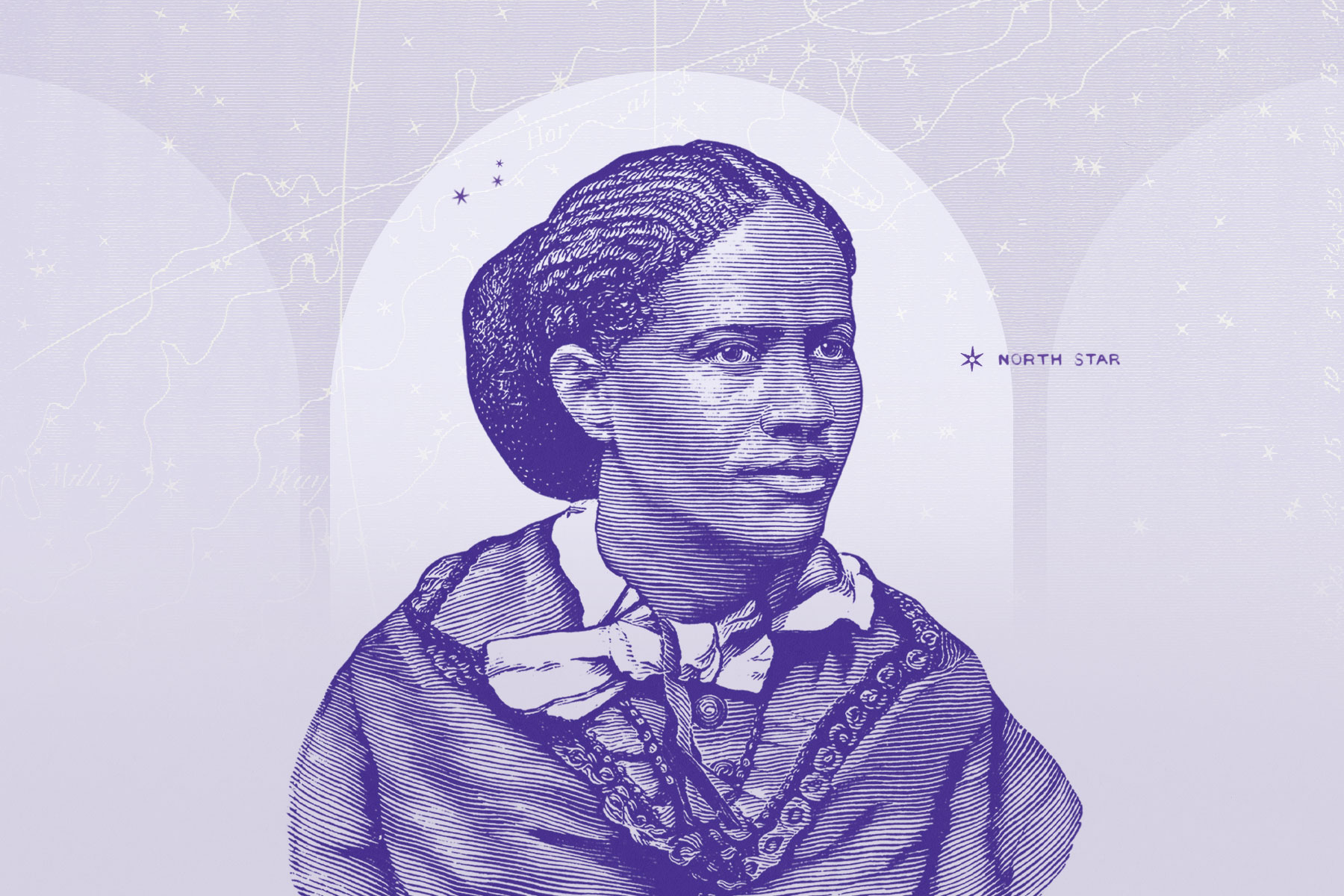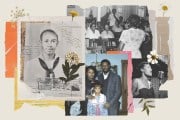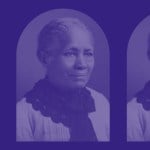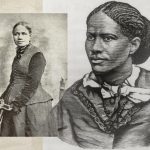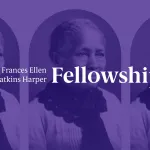On February 22, 1911, Frances Ellen Watkins Harper — author, poet, abolitionist and suffragist — died at 85. As the “mother of African American journalism,” Harper has inspired generations of Black writers and activists, and The 19th’s HBCU fellowship program is named in her honor.
Our five fellows are a living testament to Harper’s enduring legacy, and to mark the anniversary of her passing, they have each reflected on her work and how it inspires them.
The revolutionary life of Frances Ellen Watkins Harper makes clear to me that speaking truth to power not only takes great courage, but is also deeply spiritual work. Whether as an abolitionist, an organizer, or as one of the most prolific writers of the 19th century, she was faithful to her advocacy for racial and gender equality. Her legacy reminds me of an invitation given by the trailblazing theologian the Rev. Dr. Katie Geneva Cannon to “do the work your soul must have.” Harper certainly accepted that challenge.
She was a free Black woman who traveled all over the country, often braving threatening encounters with train conductors and affronts to her dignity, to share her deep convictions and tell hard truths to audiences who would rather minimize them. She witnessed and was writing during the end of enslavement, the promise of Reconstruction, and the nadir of Jim Crow. At a time when many consider that our nation may be entering a second nadir, her unflinching commitment to truth-telling and movement-building serves as a type of North Star for me. I’m inspired to follow in the tradition of the vanguard of Black women like Harper who were unwavering in their fight for equality, who operated with moral clarity and were compelled by the cause of liberation for all people. — Amethyst Holmes, product and technology fellow
-
Read Next:
It feels as though the world has been going through trying times for nearly a decade. In these years, I admit I have had times when it became frustrating to keep advocating for truth when it felt like the world shut everything out. Black women like Frances Ellen Watkins Harper serve as a North Star, demonstrating how even in darker times we still made it through.
Harper’s poem, “Then and Now,” documents the tumultuous history of the United States, but is underscored by an undeniable optimism that despite the worst of history, there will always be those who confront it.
“In the new era of your life, / Bring love for hate, and peace for strife,” she writes in the final stanza of the poem. Despite the horror and injustices she faced, Harper still aspired to be the kinder, gentler change she wanted in the world.
Harper’s dedication to her mission despite the impossible barriers she faced as a journalist and even more so as a Black woman means that nothing in this world is insurmountable. There will always be dark times, but Harper, and so many women that came before and after her, carry the torch that reveals a brighter future. — Chanel Cain, audience engagement fellow
“Neath that flow of song and mirth / Runs the current of despair, / But the simple sons of earth / Know not the dead are there!” — “The Revel” by Frances Ellen Watkins Harper
At her core, Frances Ellen Watkins Harper loved to read.
After finding a deep passion for literature at her employer’s bookshop, Harper embarked on a remarkable journey as a writer, lecturer and abolitionist that all began with stories. In this way, I see my own journey in hers.
The power that written words have had on African-American communities throughout history is undeniable. Harper recognized this power and used her writing as a tool to uncover the hard truths of her reality. For many Black women writers, putting pen to paper is a primary way that they can marry their experiences and creativity. As a member of this community of writers, I have deepened my understanding of highlighting myself and others like me through examining her work.
Like Harper, my drive to become a writer came from an amusement with books. The strategic word choices, the endless possibilities, and the ways in which an author could say so much while saying so little struck a fire in me that I have yet to put out. For Harper, that fire resulted in years worth of anti-slavery work, education and the history-making short story “The Two Offers.” The groundbreaking work that she journeyed through following her love for literature continues to remind me just how far I can go. The strength in her words and the pathways she has opened feel like a testimony for those who were once little Black girls who loved to read. — Sabreen Dawud, reporting fellow
When I read Frances Ellen Watkins Harper’s work, her words sound like liberation and feel like a road map for Black writers like me. As a journalist, activist, poet and abolitionist, Harper is the definition of a movement journalist. She challenged the status quo and wrote in the service of social advancement.
Her poems, like “Dark-Browed Martha,” are reminders that my intersectionality not only makes me an expert on the shared experiences of Black folks but also qualifies me to write about our stories, just like Harper.
As the mother of African-American journalism, Harper only wrote for anti-slavery or abolitionist newspapers. Her writing is what I look at as the foundation for the types of stories I tell and how I decide which news outlets to write them for; exclusively, organizations working to challenge oppressive systems.
“In the new era of your life, Bring love for hate, peace for strife” – Frances Ellen Watkins Harper — Alexis Wray, reporting fellow
When I think of Frances Ellen Watkins Harper, I think of her bravery. I think of the courage it took her to write for and about her community.
I think of “Songs for the People,” a poem of Harper’s that I read in one of my first collegiate courses. Back then, I was a wide-eyed freshman attending my father’s alma mater, excited to learn new things and make a name for myself. I didn’t know it yet, but even then I carried a legacy of stories within myself. Harper taught me that we all do.
I think of what she meant when she wrote, “Let me make songs for the people / Songs for the old and young; / Songs to stir like a battle cry / Whenever they are sung.” I think of how, especially in times like these, we need our stories and our songs. We need them to remind ourselves why we fight. I imagine this is why Harper loved them, too.
Each day as I meet with my fellowship cohort and learn from them, I’m reminded of Harper’s legacy. I think of how her writings have traveled as a whisper throughout the course of my life, from the books I read growing up and the Black female authors who were inspired by her work, to my professors, Black women who found Harper’s stories as manifest and taught her legacy to their students.
On February 22, 1911, Harper — the “mother of African American journalism” — died at 85. Her legacy continues to point the way forward for the fellows whose work bears her name.I think of how Harper’s legacy weaves a thread within and throughout The 19th, continually inspiring us to do more, to be great. To survive, in spite of suffering. To prevail. — Eden Turner, reporting fellow
